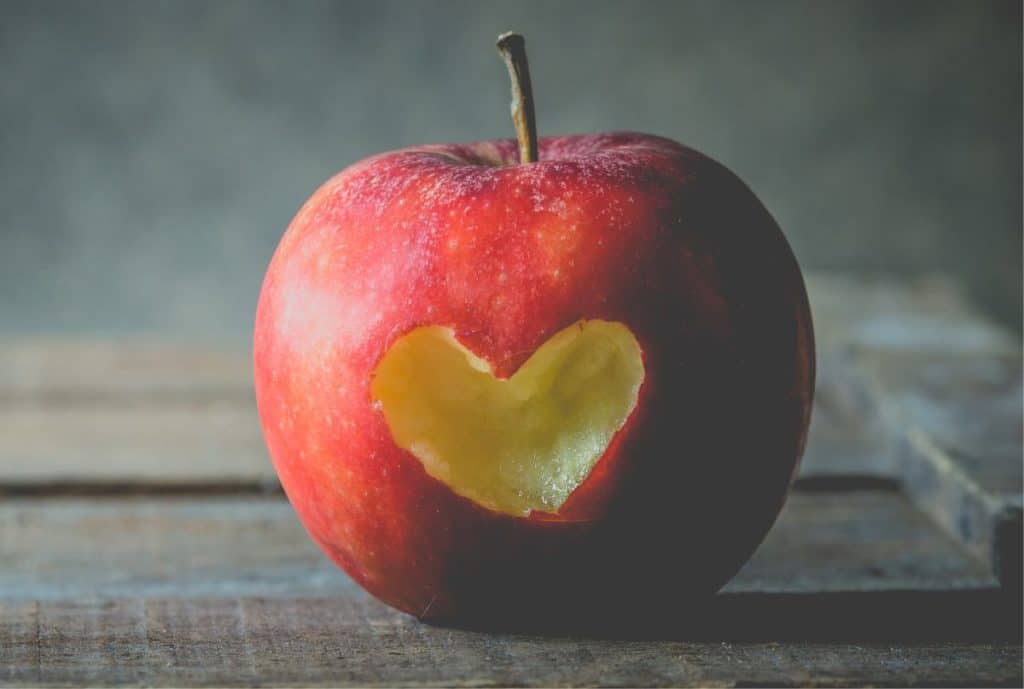
In Greek mythology, apples were associated with the healing god Apollo, perhaps the source for the modern-day adage that an apple a day keeps the doctor away.
In medieval times, physicians were taught that cooked apples could relieve bowel, lung, and nervous system disturbances. The custom of serving fresh fruit, particularly apples, at the end of a meal, arose because of the favorable effects on digestion attributed to them by the physicians Hippocrates and Galen. Plus, apple juice was one of the earliest prescribed antidepressants.
Apples give your child a healthy dose of pectin
Apples are not bursting with vitamins and minerals like other fruits, though they provide some vitamin C and potassium. However, apples are undoubtedly amazing for controlling blood sugar, says Dr. Barry Sears in his book The Top 100 Zone Foods. “Apples are a good source of soluble fiber, especially pectin, which helps control insulin levels by slowing the release of sugar into your bloodstream. Pectin also helps reduce cholesterol levels by lowering insulin secretion.”
Apples shine in antioxidants
We now also know that apples fairly shine in antioxidant phytochemicals.
Research suggests that natural antioxidants could be even more effective than vitamin supplements. Cornell University researchers, for example, have found that the amount of fresh apple extract from a medium apple with skin provides antioxidant activity equal to 1,500 milligrams of vitamin C. Using colon cancer cells treated with apple extract, the scientists found that cell proliferation was inhibited in vitro. The researchers also tested the apple extract against human liver cancer cells and again found inhibition of the growth of those cells.
Apples are high in quercetin
Apples are probably the most common food that’s a good source of quercetin. Quercetin is a flavonol, a sub-category of flavonoids, which reduces cancer risk.
A study published on August 1, 1997, in the American Journal of Epidemiology, was focused on flavonoids. The study reviewed the diet of 9,959 Finns aged five to 99 years. Of those in the group who were cancer-free in 1965, those who ate the most flavonoid-rich foods — apples and other fruit, onions, juices, vegetables, and jams — had a 20 percent lower incidence of cancer through 1991. Quercetin, a flavonoid found mostly in apples, accounted for 95 percent of the flavonoids consumed by the study group.
Other possible health benefits of quercetin include fighting free radicals, relieving allergies, lowering blood pressure, and reducing inflammation, the risk of neurological diseases, the risk of infections, and the risk of heart disease.
To get the most benefit, don’t peel your apples. Quercetin is found only in the skin.
Apples contain the trace mineral boron
Boron is essential to your child because it helps harden their bones. Strong bones aid in preventing osteoporosis later in life, according to the University of Pittsburgh. Boron is also needed to build muscle and improve muscle coordination and cognitive skills.
Apples are relatively cheap when purchased in season, and they’re versatile. Most children enjoy apples, so give your kids a nutritious and delicious snack that will keep them healthy now and into adulthood.
Edublox offers live online tutoring to students with dyslexia, dyscalculia, and other learning difficulties. Our students are in the United States, Canada, Australia, and elsewhere. Book a free consultation to discuss your child’s learning needs.

